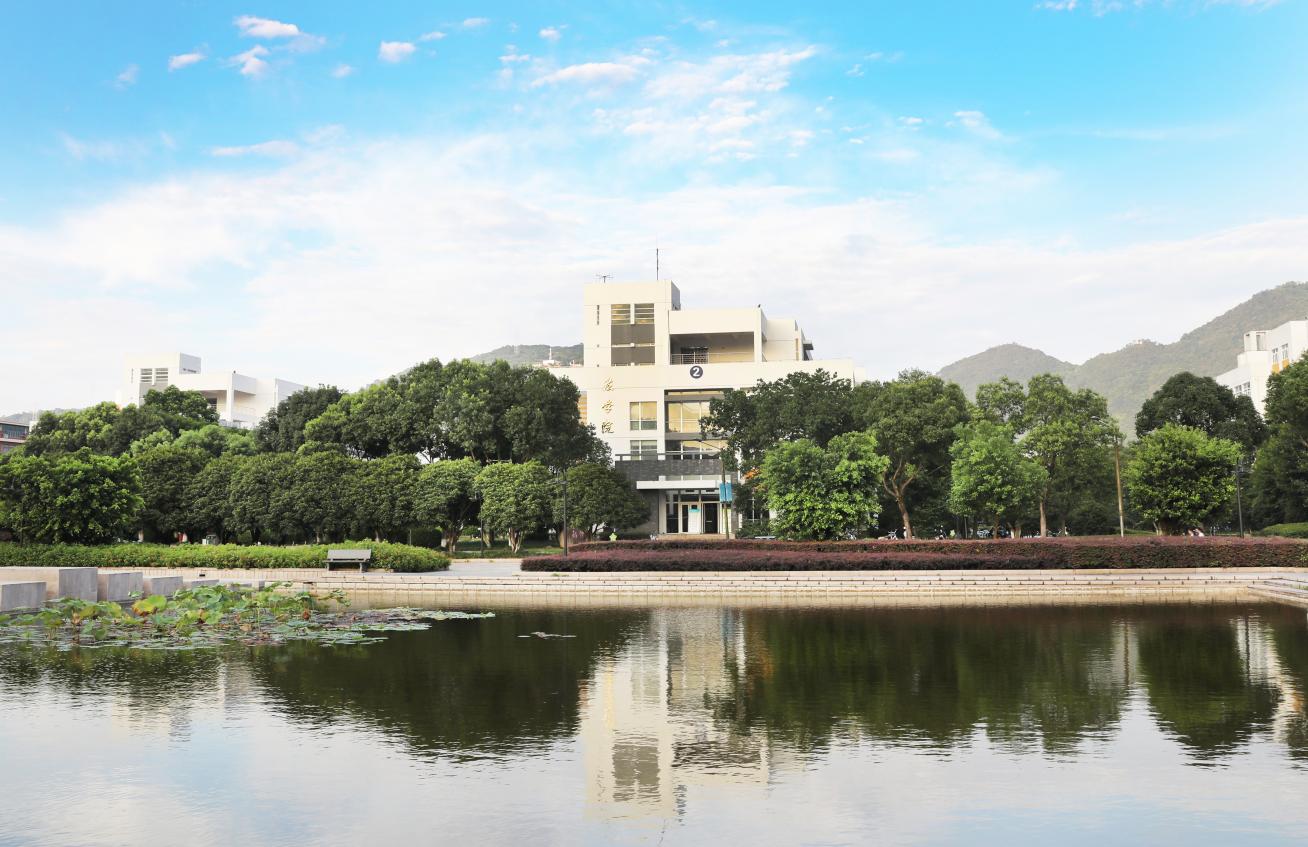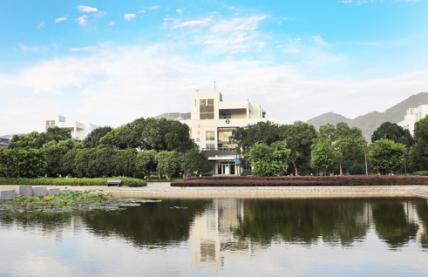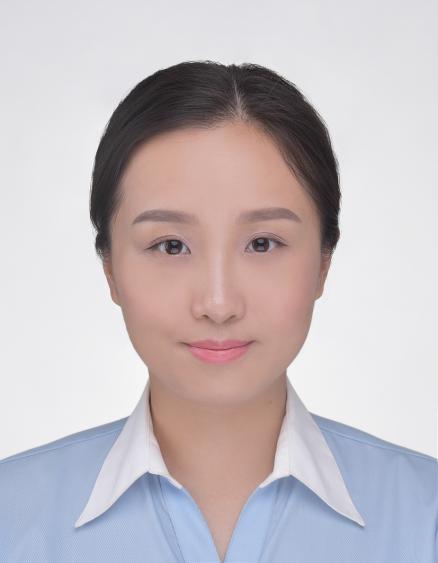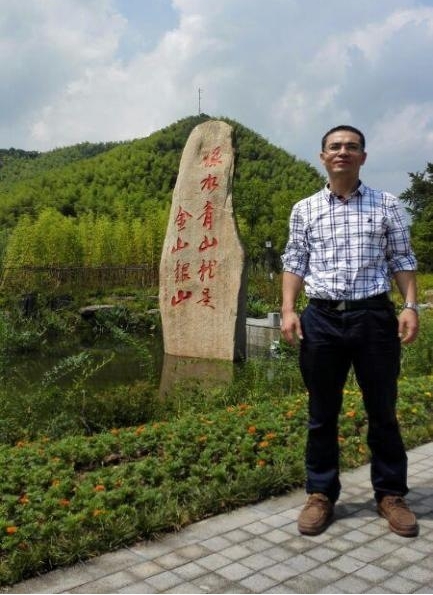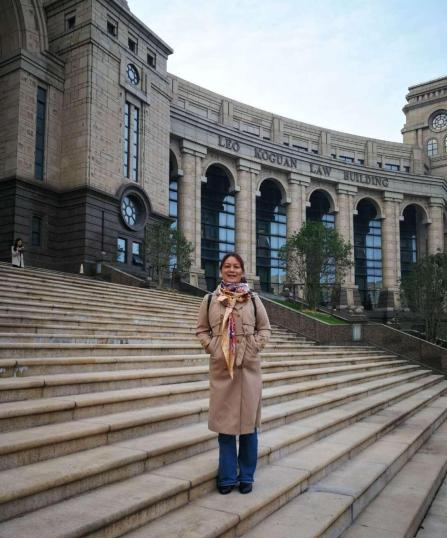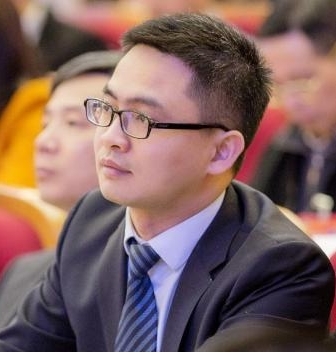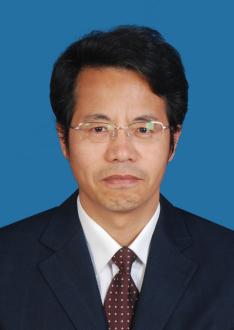Law
The Law School
The Law School
About | Programs | Research | Partnership | People
About
The Law School of the Wenzhou University is one of the most famous law schools in China, with a strong commitment to excellence in teaching and researching. Now it has two majors: law and administrative management. The courses provided by the Law School are highly regarded for their quality and intellectual content. The Law School, WZU has more than 40 full-time academic staff, comprised numbers researchers with high distinction as well as a group of promising junior scholars. Most of them have overseas study and research experiences.
The Law School, WZU, was ranked 65th in position among 517 Chinese law schools. It is a youthful yet flourishing community with scholars who are imaginative and rigorous working at the frontiers of legal fields. Researches and studies accomplished at the Law School are published at the highest levels and have very powerful influence in several academic disciplines including law, policy, practice and theoretical study.
Staff at the Law School, WZU are passionate about research-led teaching, and committed to enhancing the employability and skills of our students and helping both our undergraduate and postgraduate students to improve their skills of research, inquiry, and practice to the appropriate level of their degree. The priority of the Law School is to education and supervision, we provide our students the characteristic ‘small-class’ teaching method with concentrated resources of the best quality in order to construct the student a community full of vitality and group cohesiveness.
Programs
Law (Concentration International Economic Law)
Degree: Bachelor in Law(LL.B) & Master in Law
Our Goal
The undergraduate program at the Law School, WZU is especially designed for international students who has interest in financial, business, and commercial law in an international context. The program provides students the opportunity to explore the international economic legal system and to prepare for further and deeper study in international economic law area or to do legal practice in the international business area. By accomplishing a series of intensive coursework, students will be able to develop their own intellectual toolbox for future careers in the era of economic globalization.
Course Overview
LLB at the Law School, WZU is a four-year degree program. In the first two years (Freshman), we ensure that the balance is appropriately divided between Chinese language and basic law courses, which is achieved through the unique Chinese language courses and Chinese culture courses including advanced Chinese, Chinese Writing, Chinese Viewing, Listening & Speaking, Chinese Culture and Practice as well as all the foundation courses of law. In the third and fourth year, the student could focus on study of the International Economic Law. This progress of procedure could provide our graduates of Law from Wenzhou University with the advantage of early specialization and solid foundation in their academic career.
Courses Structure
Chinese Language Modules: Comprehensive Chinese; Chinese Listening and Speaking; Advanced Chinese; Chinese Writing; HSK Training.
Chinese Culture Modules: Survey of China; Chinese Kung Fu; Chinese Traditional Music; Chinese Culture and Practice(Chinese Painting, Paper-cut, Calligraphy, Weave).
Legal Basis Modules: Legal English; Principles of Law etc.
International Economic Law Modules: Chinese Business Law; International Business Transaction; International Investment law & Arbitration; International Financial Law; International Trade and Human Rights Law etc.
Courses Description
Introduction to Jurisprudence
The course of Introduction to Jurisprudence aims to guide students to understand and use legal sense in study and practice by introducing basic concepts, basic knowledge and basic principles of jurisprudence. This course is designed to familiarize international students with the fundamental knowledge of the science of law as well as the basic situation of legal construction in China, helping students to know the question of ‘what the law is’, in order to lay the foundation for their following study on specific laws and other subjects.
Constitutional Law
As a compulsory course for law undergraduates, this course introduces the basic principles and historical development of Constitutional Law, the fundamental rights and duties of citizens, the state structure and forms of government, the electoral system, the national flag, anthem and emblem.
Criminal Law
This course introduces general principles and theories of crime and the basic principles, theories and institutions of criminal law. It mainly focuses on: (1) the object of criminal law study; (2) the system of criminal law; (3) the nature and aim of criminal law; (4) the scope of validity of criminal law; (5) the concept of crime; (6) the formation of crime; (7) subject of crime; (8) subjective requisites of crime; (9) the object of crime; (10) objective requisites of crime; (11) justifiable defence and necessity; (12) inchoate crime; (13) joint offence; (14) multiple crimes; (15) criminal responsibility; (16) the nature and purpose of punishment; (17) the types and system of punishment; (18) specific application and execution of punishment; (19) prescription and pardon.
Principles of Civil Law
This course is compulsory for all law students, aiming at familiarizing students with civil law and its basic theories for a preliminary understanding of the basic framework of civil law to lay a solid foundation for the study of other law course by training them in theoretical and logical thinking and improving their ability to practice law. It mainly introduces civil law as the core of administration of justice, person (natural person and legal person), the basic principles of civil law, legal relationship, legal transaction, agency and limitation.
Administrative Law
This course introduces the fundamentals and basic theories of administrative law. It covers the basic theories and principles of administrative law and the historical development of administrative law and the science of administrative law as well as the general theories, authorities, duties and responsibilities, administrative tools and the rights and obligations of administrative relative man.
Criminal Procedure
This course offers a general survey of criminal procedure and criminal procedure law. It deals with the development, basic theories, aim and objectives of criminal procedure law, the basic categories of criminal procedure law and the basic principles of criminal procedure, special organs and participants in criminal proceedings, jurisdiction, defense and representation, evidence, compulsory measures, incidental civil actions, time periods and service, filing and investigation of criminal cases, institution of public prosecution, trial, procedure of first instance, procedure of second instance, procedure for the review of death sentences, procedure for trial supervision, and execution of sentences, etc.
Civil Procedure
This course introduces basic theories of civil procedure law, including the object of the science of Civil Procedure Law, civil action and Civil Procedure Law, the models of civil procedure, the right of action and litigation, the basic principles and systems of Civil Procedure Law, parties in civil actions, evidence, civil action safeguards and the varieties of civil procedures, such as general procedure, summary procedure, appeals, supervision of trials, special procedures, procedure of supervision and urge, procedure of bankruptcy and liquidation of business corporations, bankruptcy-and- compensation, civil procedures involving foreign elements and judicial assistance, etc.
Administrative Procedure
This course introduces the fundamentals and basic theories of Administrative Procedure Law. It covers the theories, nature, characteristics, constitutive requirements, legitimateness requirements and procedures of various administrative behaviours. Theories of administrative remedies and the nature and functions of administrative review and administrative litigation, the scope, jurisdiction, procedure and adjudication norms of administrative reconsideration and administrative litigation will also be touched upon in the course. The course also deals with the basic theories, constitutive requirements, the principle of culpability, the scope of administrative compensation and the forms, measures and procedure of administrative compensation.
Legal Theory
This is a fundamental course of legal theory for legal education. It mainly focuses on the basic concepts, principles and regulation of law. It makes an in-depth analysis and interpretation of the basic concepts of the law science, such as law, rights and obligations, legal act, legal relationship and legal responsibility. It probes into such issues in legal theory and practice as law order, legal methodology, legal professions, a country under the rule of law, and law and the harmonious society.
Public International Law
This course consists of two parts. The first part deals with the basic principles of Public International Law, including the concept, history, sources and codification of international law. It also introduces the rights and obligations of states, principles of international law, the recognition of states and government succession, the responsibility of states and other international legal subjects. The second part deals with different areas of international law and their related rules such as territory and non-territory issues, the law of the sea, air law, and outer space law, individuals and human rights, diplomatic relations, the law of treaties, international organizations, the peaceful settlement of international disputes, the international judicial system and the law of war.
Conflict of Laws
Problems arising when litigation occurs in more than one forum or when one or more fact element in a case occur in a jurisdiction other than the forum. More particularly, the course includes a study of the problems of recognition and enforcement of foreign judgements (state and nation) and choice-of-law problems in torts, contracts, property, family law, administration of estates, and business associations.
Labour Law
This course mainly covers the following topics: (1) basic theories, the object of regulation, the historical development, basic principles, the status and system of labour law, and legal relationship of labour; (2) employment, employment contract, collective contract, remuneration, working time and vacation, labour safety and hygiene condition, awards and penalties, trade union, etc. (3) labour disputes; (4) supervision and inspection on the enforcement of labour law; (5) basic theories of social security law and rules on the protection of employees in time of child bearing, agedness, unemployment, industrial injury and illnesses.
International Economic Law
This is an introduction course offered to law undergraduates for the purpose of giving them some preliminary knowledge about important legal issues in the course of international trade. This course is divided into four parts: (1) introduction, including conceptions, ranges, subjects, sources and principles international economic law; (2) specific aspects of international economic law, including international trade law, international technology transfer law, international investment law, international tax law and international finance law; (3) settlement of disputes, including negotiation, mediation, arbitration and litigation); (4) international economic organizations, including international and regional organizations. The second part is the focus of the course.
International Commercial Arbitration
This course enables students to have a general understanding of the legal concepts and the basic legal system of international commercial arbitration, including (1) An Overview of International Arbitration; (2) Agreement to Arbitrate; (3) Applicable Laws; (4) Establishment and Organisation of an Arbitral Tribunal; (5) Powers, Duties, and Jurisdiction of an Arbitral Tribunal; (6) Conduct of the Proceedings; (7) Role of National Courts during the Proceedings; (8) Arbitration under Investment Treaties; (9) Award; (10) Challenge of Arbitral Awards; (11) Recognition and Enforcement of Arbitral Awards.The case study enables the students to put the knowledge of international commercial arbitration into practice and resolve specific problems they may encounter in foreign-related civil and commercial dispute resolution.
WTO Law
This course introduces the legal framework and basic legal features of the WTO, including (1) the Introduction of International Trade and the Law of the WTO; (2) The World Trade Organization; (3) WTO Dispute Settlement; (4) Rules of Non-Discrimination(Most-Favored-Nation Treatment, National Treatment); (5)Trade Barriers(Tariff, Non-tariff, Technical); (6) Exceptions of WTO Law(General, Security, Economic Emergency, Regional Trade); (7) Dumping and Subsidies; (8) Sanitary and Phytosanitary Measures; (9) Intellectual Property Rights. The aim of the course is to let the students master the WTO rules. In addition to classroom teaching, this course requires students to learn how to use online resources to review relevant laws, regulations and case law. The case study on WTO law may lay a solid foundation for the future involvement of the students in their legal profession.
Entry Requirement:
Non-Chinese citizen, physically and mentally healthy
High school graduate or equivalent.
Good command of English Language
Application Materials:
Wenzhou University Application for Admission (International Students).
Photocopy of your valid passport.
Photocopy of your high school diploma.
Transscripts of high school education.
English proficiency evidence, such as IELTS (6.0), TOFEL (iBT 75) or other effective test report (FOR non-English applicants)
Recommendation letters from two experts (assistant porfessors, associate professors, or professors)
Two recent two-inch bareheaded, full - face photographs (digital copy)
Duration: 4 years for undergraduates; 3 years for postgraduates.
Research
The two municipal research platforms: Regional Rule of Law Research Institute and Grassroots Governance Modernization Research Institute.
The eight school-level research institutes: Regional Government Performance Management Research Center, Incorruptible Government Construction Research Center, Private Law Research Center, Social Law Research Center, Public Law Research Center, Research Center of Ecological Environmental Governance, Research Center of Law on Overseas Chinese Affairs, and Public Policy Research Center.
Partnership
The Law School has a deep and extensive cooperation with courts, procuratorates, law firms and local government departments both in and outside Wenzhou City. The Regional Government Performance Management Research Center has cooperated with the Government Affairs Administrative Bureau of Wenzhou city and other departments, in programs of one-stop administrative model and third-party assessment in reform of administrative examination and approval system. Wenzhou Local Legislation Research Institute has joint efforts with Wenzhou Municipal People's Congress and Wenzhou Municipal Justice Bureau in drafting, assessing, along with the recording-keeping and review for normative documents of local legislation,etc. Wenzhou Training Base of Rule of Law Education for Cadres has been established to provide professional training for the local government cadres.
Contests
With solid academic knowledge and competence, Law School students have achieved impressive results in numerous academic competitions. They have participated in a series of competitions including Zhejiang Legal Professional Capability Contest for College Students, and other contests like legal academic papers writing, debates, moot court, speeches, in which they have been awarded several provincial first prizes.
Furthermore, the Law School students have won the winning prize in the "Gold Mallet Cup" Invitational Moot Court Competition of Universities in East China, the national third Prize and the special contribution award in the National Moot Court Debate Competition of International Criminal Court, as well as the second prize of Zhejiang Division in the "Challenge Cup" National Undergraduate Curricular Academic Science and Technology Works Competition.
People

